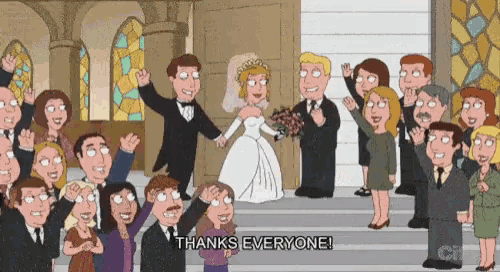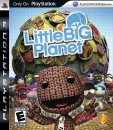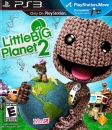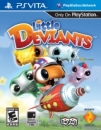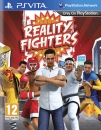
Fans of the Tomb Raider series were upset when it was announced that Rise of the Tomb Raider would be an Xbox exclusive upon release. Why would Square Enix turn its back on PlayStation 4 customers? Why are they walking away from making the game a hit by limiting its potential audience?
The outrage from fans, and the very real sadness of PS4 fans who may not play the game now, is real.
Here's what's hard for gaming fans to do: We need to stop looking at these deals purely through the lens of someone who wants to play the game. Square Enix and Crystal Dynamics are companies that pay its employees and stay in business by making profits on video games. They don't necessarily think about success as units sold. They have to think of it in terms of profit.
This deal was not made by the developer, a group of people who likely have little to no say in what happens to the game in terms of how it's sold. Their job is to make a kick-ass game. It's the publisher's job to fund the game and maximize profits. That may not mean selling the most units possible, it just means making the most money in order to fund more games. That's the correct lens. Everything else is second, and possibly tertiary.
Why would the business people say yes to this deal? Because Square Enix thinks they're going to make more money from it, and it's very possible they're going to sell more units of the game. Claiming otherwise is ignorant of the realities of development and the business of exclusives.
EXCLUSIVES ARE GOOD BUSINESS
"Why would Microsoft or Sony be interested in picking up a game that wants to be a big seller and a popular game, just for them? That's a fairly obvious answer. They want exclusive content to bring people to their system."
I spoke with Geoffrey Zatkin, the founder of CPO of EEDAR. He was quick to point out that he has no insider knowledge of this particular deal. But he does know, and understand, the business of exclusivity.
"Why is Square Enix saying yes to that?" Zatkin asked. "There are a couple of answers, and one will be money. Any game that is made exclusive on a console, that group is paying to be made exclusive. Microsoft will pay them in some way to make it exclusive."
This is where it gets tricky, and the "payment" may not be as simple as check. Microsoft may pay part of the game's development budget. It may be promising to help with marketing, which could mean anything from prime, long-term placement on the Xbox One's dashboard to the best displays in retail stores.
Microsoft may supply engineers or development talent of its own to make sure the game looks and plays as well as possible, while also offering anything from QA to localization support.
Platform holders have a lot to offer when it comes to development, and every bit of help frees up the time of the developers and, more importantly, decreases the budget of the game.
Microsoft may also offer a reduced royalty rate, which costs the company nothing out of pocket, but which will increase the profits Square Enix sees from every sale.
Imagine a deal where Rise of the Tomb Raider will be given premium advertising and placement on a variety of retail and digital locations, and Square Enix has to pay Microsoft less money as a royalty per game sold, while also getting development support?
You're suddenly looking at a deal that could be worth potentially huge amounts of money, with very little formal payment from Microsoft. If the game sells more due to Microsoft's push, and they take less of that money in royalties, Square Enix wins both ways.
And remember, the point is to forget about units sold. That's not the game Square Enix is playing. They're interested in return on investment, on the largest possible profit. Sometimes that means selling the most units, but sometimes it doesn't.
"When they're complaining that they only sold X million units, they're complaining that they didn't make as much money as they wanted. That's what it really means," Zatkin said. "So in some cases, even if they only sold the same amount of units ... but they can do it on 30 percent less cost for the same amount of units, the return on investment is significantly larger."
Microsoft is throwing money at Square Enix, and it may be in a lower royalty paid to Microsoft on sales, or it could be in subsidizing the game's creation, or the promise of a huge push when it comes to marketing, or it could be all of those things at once.
"Square Enix isn't doing this because it thinks Microsoft is cool, they're doing it because they're getting well compensated in some way for doing it.
"Whenever you see an exclusive, it's because the group is being well compensated to make it exclusive," Zatkin said. "It never happens just for the love of it."
BUT THEY'RE LOSING SALES ... RIGHT?
Maybe not. You're going to hear from the players who only own the PS4, because they have the most to lose from this deal. They don't get to play the game until it's released on their platform. But that number is smaller than you think, as many gamers buy both consoles.
Let's assume a market of 100 people, because the math is easy. Maybe 25 people will only own the Xbox One. Maybe 25 people will only own the PS4. It's also very possible that 50 of those people own both consoles. "So it's not that they're cutting off half their market; they may only be cutting off 25 percent," Zatkin said.
The number of lost sales is only about the customers who only own the PS4, and that number is smaller than you think once you take into account customers who own both systems.
"The percent of the audience they're losing is probably a lot smaller, but what is probably being spoken about are the fanboys, the people who are dedicated enough to only run one console and to actually comment on it," Zatkin pointed out. "That's where the blowback's coming from."
There is another benefit to this deal, and one that could mean the game sells more units overall: Square Enix gets to enjoy the benefits from Microsoft while gaining the ability to launch the game multiple times.
Almost all exclusive deals are timed — when a platform holder wants a forever exclusive they buy either the rights outright or the studio itself — which means Rise of the Tomb Raider is coming to PS4 at some point. Most games sell the most amount of units in the first days of sales, so Square Enix will see a big jump in sales when the game is first released on the Xbox One, and then again when the Game of the Year Edition that includes DLC is finally offered on the PS4. They can then also offer that version on the Xbox One, and get another bump in sales as their ad dollars now support two releases across two platforms.
Think of it this way: Microsoft is likely defraying the cost of the game's creation while giving Square Enix the ability to launch one game twice, releasing three total products across both consoles. It's very likely the game will sell more units overall, while the cost of its creation may end up being lower due to Microsoft's subsidies.
So there you have it. Square Enix will likely make more money on Rise of the Tomb Raider due to this deal, which means more Tomb Raider games, which makes me happy as a fan of the franchise. It also means that the PS4 version will likely include more content for less, which will lead to greater overall sales. It's a great deal, and very little of the actual audience is being turned away.
It's very possible that the game's existence itself is due to this exclusivity deal; without Microsoft easing the cost of the game's development and supporting it upon release,Rise of the Tomb Raider may have never been given the green light to go into full production.
Exclusives, as long as you know how to negotiate, are great for business.
"If you can get good deal terms, exclusivity is never a bad thing. But it has to be good enough deal terms that it offsets the sales you think you'd get, or it mitigates the risk of the development cost," Zatkin said. "Or both, if you're lucky."
http://www.polygon.com/2014/8/13/5998637/tomb-raider-exclusivity







































